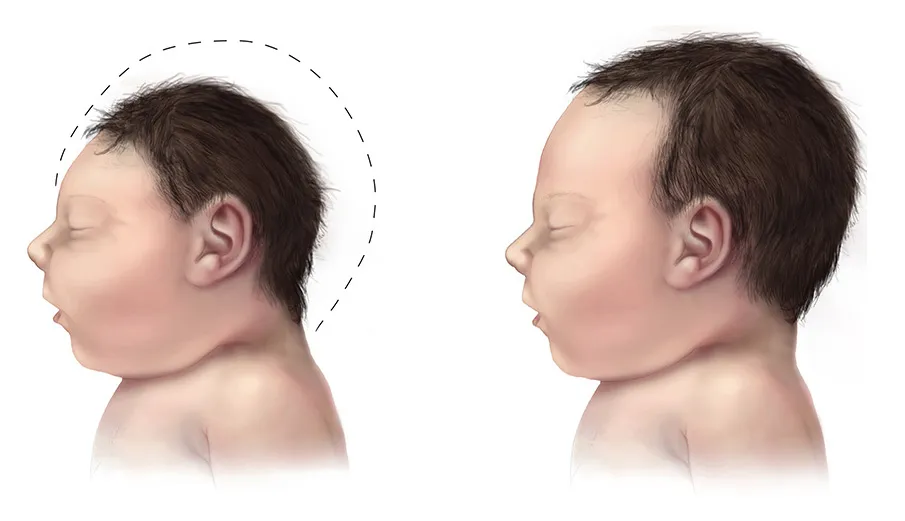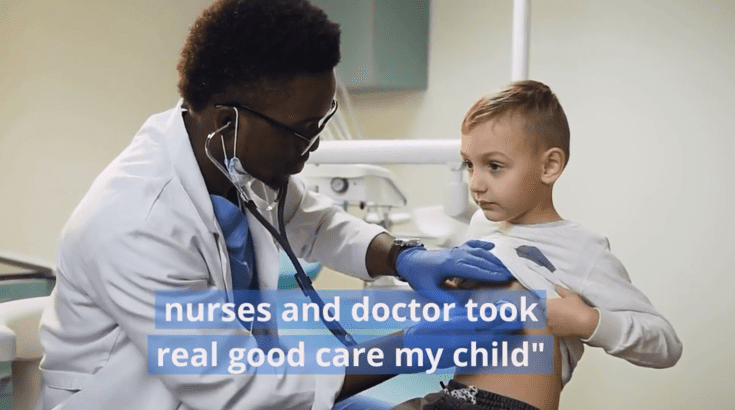Table of Contents
As a parent, you would always wish for your child’s well-being and joyous existence. Even when providing a secure and nutritious atmosphere, certain circumstances demand the intervention of a competent healthcare specialist.
Enter pediatricians, the healthcare heroes with the unparalleled ability to cater to the medical needs of children from their earliest days to their teenage years. They play an essential role in securing the happiness and health of children.
Whether it’s routine check-ups or severe ailments, their impact on child healthcare is unparalleled. In this article, we aim to explore the world of pediatrics and shed light on the invaluable services these experts offer for the benefit of our young ones.
The Importance of Pediatric Care
Pediatric care is essential for ensuring the optimal health of children from infancy to adolescence. It encompasses monitoring healthy development and diagnosing and treating any injuries or illnesses that may occur during this phase of life.
You can benefit from numerous medical services for your child offered by highly experienced pediatricians.
Preventive Care
Pediatric care offers a great advantage by focusing on preventive measures. Regular check-ups and scheduled vaccinations are well taken care of. Pediatricians detect and resolve potential health issues before they worsen.
Ensuring your child’s health is in good shape also positively impacts their emotional and cognitive growth.
Management of Chronic Ailments
Handling chronic and persistent health conditions is an essential component of pediatric healthcare. Pediatricians collaborate with other medical specialists and other healthcare practitioners to effectively manage these illnesses.
Also, pediatricians work closely with the patient’s family for cooperation and full compliance since these ailments require constant monitoring and ongoing therapy. They provide necessary assistance and information to ensure proper treatment.
Care for Behavioral Issues
Pediatric care encompasses the overall health of children. There are several emotional or psychological challenges that children may confront. Pediatricians are equipped to detect these concerns and offer referrals conducive to finding support and care.
The Many Hats of a Pediatrician
Your child’s doctor plays a multitude of roles to give a holistic approach to the healthcare needs of their young patients. Below are the hats pediatricians wear:
Diagnostician
The core duty involves assessing symptoms, diagnosing, and curing illnesses that affect children. Pediatricians recommend necessary tests and provide appropriate remedies for these ailments and illnesses.
Preventive Health Advocate
Prevention of health problems is a key component of pediatric care. Pediatricians emphasize the importance of early screening for developmental problems, vaccinations, and regular check-ups.

Counselor
Pediatricians extend emotional solace and guidance to families grappling with the illness or their child’s developmental dilemmas.
Educator
Pediatricians prioritize the well-being of children by imparting knowledge to parents and caregivers. They also provide developmental benchmarks to promote sound growth and development.
Researcher
Pediatric research has a significant goal of enhancing the standard of medical assistance provided to children. It broadens the range of pediatric treatments available.
Community Health Advocate
Pediatricians strive to enhance the well-being of the societies they cater to. They endorse initiatives aimed at public health and supporting policies that are advantageous for children.
Advocate for Children’s Rights
Children’s welfare is of utmost importance to pediatricians who go to great lengths to protect them from harm. These experts are committed to ensuring their safety and overall health.
Team Player
Collaboration with healthcare professionals is vital for pediatricians to provide children with comprehensive and well-coordinated healthcare.
How Pediatricians Work with Families
Pediatric healthcare professionals joins forces with parents to guarantee the best possible medical treatment for their children. They go further by guiding and enlightening families on health and wellness.
During the prenatal phase, parents-to-be are introduced to pediatric doctors. These pediatric doctors provide insights about childbirth experience and offer advice on preparations for an upcoming newborn.
Also, the doctors assist in choosing the baby’s required vaccinations and examinations. Once the baby is born, the pediatrician takes charge of monitoring the baby’s health.
For pediatric doctors, building solid relationships with families is important. They understand the value of involving parents in their treatment and explain the medical procedures in a comprehensible way.
This strong collaboration enables both parents and babies to fully engage in the medical process to provide tailored treatment plans suitable for their specific needs. By suggesting lifestyle changes, doctors aim to improve the overall health of children.
How Pediatricians Manage Behavioral and Emotional Issues
Pediatricians promote children’s health and happiness through assistance with their behavioral and emotional concerns. An early intervention in these matters is critical in preventing adverse consequences.
Pediatricians utilize diverse methods to encourage sound emotional and behavioral growth. They offer counsel to help parents foster a warm and supportive living space. They promote physical movement, all these are beneficial to one’s emotional welfare.
Pediatricians may opt to connect children and their families with external resources and educational institutions. These are counseling services that aid in managing difficult situations and developing resilience. It also helps establish a conducive learning atmosphere.
Nonetheless, pediatricians play a vital role in enhancing the well-being of children by managing their behavioral and emotional challenges. Their proactive approach of early intervention and assistance enables children to acquire competencies to excel in their academics..
How Pediatric Care Impacts Family Mental Health
We have discussed about the positive outcomes of pediatricians working with families. Moreover, they go beyond treating illnesses and administering vaccinations. They also manage on children’s behavioral and emotional issues.
All these boil down to family mental health. With access to top-notch healthcare afforded by pediatricians, it gives a significant impact on the mental well-being of both the children and their families.
Pediatricians are proactive in handling behavioral or emotional concerns right from the start. This approach helps to prevent any potential mental health issues from becoming complex in the latter years.
Pediatricians work closely with families to identify and address any elements that may endanger a child’s mental health and general well-being. They provide valuable assistance by endorsing therapy or counseling sessions to address certain issues.
Pediatricians can give referrals to appropriate community resources that help address the family’s needs. This act of connecting families with such resources helps in uplifting the mental health and general well-being of the entire family unit.
Indeed, pediatric care has far-reaching effects on the mental health and well-being of families. Promoting sound emotional and behavioral development in children extends far beyond immediate benefits. As our children grow up, pediatricians’ roles are also getting complex.
The Future of Pediatric Care: Innovations and Advancements in Technology and Medicine
Pediatric healthcare is experiencing a dawn of hope with the advancements in technology and medicine. For one, telemedicine has made a surge. With this emergence, pediatricians can conveniently diagnose and treat children remotely.
Telemedicine proves to be a blessing to families living in areas with limited access to healthcare facilities. Moreover, technological advancement keeps track of children’s health conditions and provides immediate feedback to physicians and caregivers.
Pediatric care has undergone transformations and medical breakthroughs. For example, gene therapy and immunotherapy are proven to be effective options for diseases that were once untreatable. Precision medicine is gaining popularity, too.
Precision medicine has slowly become prevalent among practitioners as it personalizes treatment plans based on the patient’s genetic profile.
Technology has impacted mental health in a positive direction. Teletherapy and digital mental health applications provide access to mental healthcare. Children suffering from mental health issues can now obtain successful treatment through virtual reality therapy.
Innovations in this field hold the possibility of enhancing the welfare of children and their families.
Celebrating Pediatricians and Their Dedication to Kids’ Health
Pediatricians possess not only comprehensive medical expertise and training but also an innate sense of empathy and compassion toward their young patients. With a commitment to personalized healthcare, they tailor their approach to each child’s specific needs.
Pediatricians establish robust relationships not only with their young clients but also with their loved ones. This enables them to know the family’s circumstances, way of living, beliefs towards healthcare, and other specific necessities.
The vital responsibility of safeguarding a child’s welfare lies with pediatricians, and they ought to be acknowledged for it. It’s their conviction that every child is given the chance for a healthy life. It’s their dedication to providing top-notch healthcare for their patients.
Pediatricians Beget Healthy, Happy Kids
The pediatrician’s vital role in ensuring children’s overall well-being and health can’t be stressed enough. They are the superheroes who work tirelessly to ensure that each child is cared for and reared in a conducive and healthy environment.
It’s in this perspective that we at Omega Pediatrics take pride in our team of healthcare professionals. Entrust your child with us, then you’ll have peace of mind that you’ve got the best pediatricians whom you can trust to be on top of your child’s healthcare needs.
We at Omega Pediatrics are one with you to have healthy, happy kids. We treat your little ones as one family. We treat them with love and compassion.
Come! Book an appointment with us, and we gladly welcome you!
FAQ
What is pediatric care, and why is it important?
Pediatric care focuses on ensuring the optimal health of children from infancy to adolescence, providing preventive care, managing chronic ailments, and addressing behavioral and emotional issues. It is essential for monitoring healthy development and treating injuries or illnesses in children.
What roles do pediatricians play in children’s healthcare?
Pediatricians wear multiple hats, including diagnostician, preventive health advocate, counselor, educator, researcher, community health advocate, advocate for children’s rights, and team player. They provide holistic healthcare, emphasizing early screening, vaccinations, regular check-ups, emotional support, and education for families.
How do pediatricians work with families?
Pediatricians collaborate closely with parents from prenatal care through childhood, offering guidance, support, and medical expertise. They build strong relationships, involve parents in treatment plans, and explain procedures clearly. By suggesting lifestyle changes and connecting families with resources, pediatricians aim to improve overall family health.
How do pediatricians manage behavioral and emotional issues in children?
Pediatricians proactively address behavioral and emotional concerns in children, offering counseling, referrals to external resources, and promoting physical activity. Early intervention helps prevent adverse consequences, fostering resilience and emotional well-being in children.
What innovations are shaping the future of pediatric care?
Advancements in technology and medicine, such as telemedicine, gene therapy, immunotherapy, and precision medicine, are transforming pediatric healthcare. Teletherapy and digital mental health applications provide access to mental healthcare, while precision medicine personalizes treatment plans based on genetic profiles. These innovations hold promise for enhancing children’s welfare and improving healthcare access.



